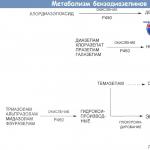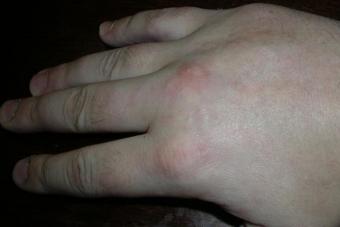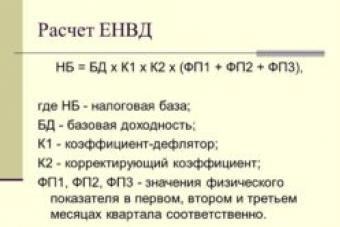Often, newly-made mothers have a question as to whether it is possible to eat cucumbers while breastfeeding a newborn baby. Let's try to give an answer and find out: how this vegetable can be useful and how to use it correctly with active lactation, so as not to harm the baby's health and not worsen his well-being.
What is useful cucumber?Rich vitamin composition provided this vegetable with such a large prevalence. Cucumber contains vitamins B, E, A, PP. Among the trace elements, it is worth noting calcium, fluorine, potassium, iron, zinc, magnesium. Separately, it must be said about iodine, which is also present in cucumbers and is necessary for normal operation thyroid gland.
Fresh cucumbers have a pronounced choleretic and diuretic effect, which contributes to the release of body tissues from toxins, and it is important in the postpartum period.
Among the useful properties of cucumber, it should be noted that this fruit:
- has a positive effect on the work of the kidneys, providing diuretic effect;
- improves functioning of cardio-vascular system;
- normalizes the process of digestion, due to the presence of a large number dietary fiber. This vegetable has a mild laxative effect, which is important after childbirth, especially for those women who have problems with stool regularity.
Is it possible to eat cucumbers while breastfeeding a newborn?
Until the moment when the child is 3 months old, doctors do not recommend eating cucumbers. Otherwise, the mother may face:
- The child has;
- flatulence;
- development
- allergies.
Given the above, fresh cucumbers with active breastfeeding of a newborn are strictly prohibited.
Upon reaching the above age, it is necessary to introduce cucumbers into the diet gradually, while observing the reaction of a tiny organism. When redness, blisters, rashes appear, the vegetable is excluded from the diet. In such cases, you should immediately contact a medical facility. It is worth noting that similar phenomenon is noted quite rarely.
Thus, as can be seen from the article, the answer to the question of a young nursing mother: is it possible to eat cucumbers if the child is a newborn and has not yet turned a month old - negative. In no case are experiments and risks that may adversely affect the health of the baby are unacceptable. It is not justified even in those cases when you really want cucumbers.
Undoubtedly, vegetables are good for the body. Often, during breastfeeding, mothers limit themselves in the choice of products. This approach is caused by well-founded fears: to harm the baby. But sometimes you really want to eat something salty. Let's see if pickles can be used during lactation.
About the benefits of cucumbers
high-grade, balanced diet breastfeeding mother - the key to the health of the baby. The diet should include all the main food groups to provide a growing body: fats, vitamins, carbohydrates, proteins, trace elements.
It should be remembered: after a while, everything that mommy eats penetrates into breast milk, and then into the body of the baby. It is necessary to understand what effect the product has on the health of the child. Pediatricians recommend to exclude from the diet with HB:
- salty, fatty smoked foods;
- spicy sauces;
- spices;
- spices;
- garlic;
- canned food;
- marinades.
Vegetables when breastfeeding must be eaten: carrots, zucchini, eggplant. It is possible for a nursing mother to pickle cucumbers and tomatoes that grow inside the region of her residence. Fresh cucumbers increase intestinal motility. Improve cardiovascular activity excretory system. Thanks to potassium, the metabolism is normalized, there is a slight diuretic effect.
Salted, fresh, pickled cucumbers belong to the group of products with reduced glycemic index- 15 units, help reduce blood sugar. Due to the low calorie content, the vegetable is popular with women who want to return to their previous forms as soon as possible after pregnancy and childbirth. Some pediatricians recommend pickles while breastfeeding. They are less likely than fresh ones to provoke excessive formation of gases, colic.
Composition of cucumber

Water makes up 95% of the fetus, caloric content - 15 kcal per 100 g. Positive properties gherkins are due to:
- vitamins A, C, E, B;
- vegetable fiber;
- trace elements: magnesium, chlorine, zinc, iron, sodium, potassium.
It should be noted that the gherkin contains iodine, which is necessary for the stable functioning of the thyroid gland. Tartronic acid helps lower blood pressure, normalizes metabolic processes, counteracts the deposition of new fat.
Contraindications
With caution, it is necessary to use fresh cucumbers for gastritis, on early stages measles, enterocolitis, peptic ulcer in the acute stage.
- diseases of the stomach, intestines, accompanied by hyperacidity(gastritis, pancreatitis);
- inflammation of the kidneys, nephrolithiasis (stones);
- hepatic encephalopathy;
- individual intolerance;
- pregnancy.
Canned cucumbers with HB

Pickled cucumbers are useful for breastfeeding, as well as fresh ones. However, according to chemical composition nutritional values are slightly different. The vegetable is rich in vitamins that a mother needs with HB to restore strength after pregnancy and childbirth.
Is it possible for a nursing mother canned gherkins? The answer depends on the method of their preparation. The salting process involves the use of a natural, natural preservative - salt. It retains useful substances, the color of the product. However, her increased amount can provoke the appearance of puffiness, eliminate the diuretic effect. Due to a violation of the water-electrolyte balance, lactation may be disturbed. Water retention prevents the elimination of toxins that penetrate the milk.
It should not be forgotten that until the age of three months digestive system the baby is not working at full capacity. The delicate body of a newborn is able to react sharply to the slightest power failures of the mother. A lightly salted cucumber can provoke in a crumb:
- flatulence;
Features of pickled vegetables
The canning recipe involves the use of vinegar, citric acid. To increase the shelf life, cucumber pickle is enriched with preservatives. The aroma is enhanced by spicy herbs, spicy seasonings that can change the taste and smell of milk.
These ingredients are undesirable during breastfeeding. Preservation can cause cessation of lactation, allergic reactions.
When to start eating pickles
The most suitable period to start eating cucumbers is the age of the baby after 3-4 months. By this time, digestion is getting better, the likelihood of colic, flatulence is reduced.
Can a nursing mother eat cucumbers? Not prohibited. However, be careful not to harm the baby. The product is introduced gradually, in small portions. Carefully observe the reaction of the baby to unfamiliar food. When allergies, anxiety, itching, redness appear skin will have to wait.
Before using for the first time pickled cucumber it is recommended to conduct an allergic test in an infant. Eat half a cucumber, wait 12 hours. If after the specified time no manifestations are noted, you can safely eat your favorite dish.
Buying ready-made pickles

Pay attention to the quality of the gherkins. When buying pickled cucumbers, it is difficult for a nursing mother to check the ecological purity of the product. A crop grown with the use of inorganic fertilizers, chemical growth activators, drugs to protect plants from diseases will not bring any benefits.
Which salting option to choose?
When choosing between salted and pickled cucumbers, it is better to give preference to lightly salted ones cooked at home. The cooking technology is simple, it will not take precious time from a young mother.
Consumption rate
Fresh cucumbers for a nursing mother are allowed to eat in the early stages breastfeeding already in the first month. Experiments with food should be postponed if the baby has a rash, diarrhea.
Excessive consumption of pickled cucumbers causes undesirable consequences. Milk is secreted intensively or insufficiently. Fiber, supplied in large volumes, greatly increases the load on the intestines of the baby.
It is recommended to eat cucumbers up to 3 times a week. Start eating cucumbers with one small piece, gradually increasing to 2 pieces per day. The rate is subject to adjustment, depending on individual characteristics mother and newborn. Remember: the amount of cucumbers should be moderate.
Admission rules
Salty, pickled foods can be eaten, adhering to some rules:
- Enter after the baby reaches three months;
- Prefer home-made preparations to store canned food;
- Do not abuse pickled gherkins;
- Pickled cucumber should not be eaten on an empty stomach. After eating, do not drink a lot of water - this negatively affects the kidneys;
- It is undesirable to mix pickled food with dairy products.
Conclusion
When breastfeeding canned cucumbers use is not prohibited. It is important to observe moderation, caution. If you have any doubts, concerns about the advisability of introducing new products, consult your pediatrician. Crack a cucumber with pleasure!
During the period of breastfeeding, a woman has to limit herself in food, refuse some, often favorite, products. But for the sake of the health of her crumbs, a mother will go to any restrictions. Sometimes a woman really wants fresh, juicy vegetables, but if the doctor does not recommend, mom refuses them. The same problem arises with cucumbers: some doctors highly recommend these vegetables as absolutely safe, while others warn that they cause colic and bloating. Whom to listen to?
Vegetables for breastfeeding mothers
If the nutrition of a nursing woman is complete and varied, milk will bring the baby the nutrients necessary for growth and development. Vegetables - the usual healthy food without which no meal is complete. They are tasty, have a fruitful effect on the body, we love them. Nutritionists say that every adult needs up to 600 grams of vegetables per day.
Therefore, potatoes, beets, carrots, tomatoes, eggplants, zucchini, cucumbers are simply necessary during breastfeeding. But if the child certain products becomes ill, mother refuses them.
However, you cannot completely exclude vegetables from your diet. The baby expects from mother's milk a complete set of vitamins and useful substances. And most of the vitamins are concentrated in fruits and vegetables, including fresh cucumbers. So, postpartum constipation eliminated with cucumbers. If instead of water there are cucumbers, puffiness is prevented. By the way, in some countries, cucumber is considered a berry and is served for dessert.
The usefulness of cucumbers
Cucumbers have taken root in our menu so much that it seems as if it is our native vegetable. In fact, cucumbers came from India, where, for their shape and many seeds, they identify it with a fiery prince who had many children.
It is known that cucumbers are not a storehouse of nutrients. Almost 97% cucumbers are made up of water. But this water is structured, giving life and longevity. It becomes clear why cucumbers are so valuable to us. ethnoscience suggests drinking a decoction of cucumbers instead of water for general tone.
Cucumbers during breastfeeding are necessary already because they contain complex organic matter beneficial effect on digestion. Healthy appetite, complete digestibility of products, good intestinal motility, proper metabolism - these issues are resolved by consuming cucumbers.
Very little, but cucumbers contain proteins, carbohydrates and even fats. At the same time, they contain vitamins C, B, rare vitamin PP, as well as trace elements, potassium, magnesium, organic acids, pectins, fiber. Potassium has a positive effect on the heart muscle and kidneys, and magnesium is involved in almost all processes of the body. Pectins lower blood sugar cholesterol plaques, resist cancer. Organic acids, these natural antioxidants, give cells energy. Fiber removes toxins.
Can mom have cucumbers
Given the properties of fresh fruits, we can say with confidence: cucumbers are necessary for a nursing mother. Vegetables are especially important for residents middle lane and southern regions: they cannot do without greenery. The absence or lack of fruits will affect digestion and metabolism. For a newborn, the lack of vegetables will affect the lack of vitamins, trace elements, and other useful substances that are so necessary for a small body.
Fresh cucumbers should be introduced into the diet of a nursing woman closer to 3 months. It is during the first three months that babies tend to suffer from colic. Cucumbers can aggravate the condition of the newborn
Some mothers fear that after childbirth, the initial weight will not be restored, so they limit themselves in food. But fresh vegetables are just those foods, when eaten in any quantity, the total calorie content almost does not change. Vegetables are not too high in calories: cucumbers are only 15 kcal / 100 g, and tomatoes - 20 kcal / 100 g of weight. Therefore, they are taken in diets to reduce weight and improve the functioning of the digestive tract.
Cucumbers are such neutral vegetables that are allowed for children and adults. Very rarely there are complaints about allergies from cucumbers. Bright red tomatoes are more likely to cause allergic rash, and cucumbers are practically harmless.
Salted cucumbers - can I?
Some mothers are very fond of pickles. They are tasty, healthy, diversify the insipid menu. But salt is not useful because it binds water, thereby preventing the elimination of toxins. The baby will have to eat milk with toxins. In addition, salted and lightly salted vegetables contain vinegar, spices, and store-bought ones contain chemical preservatives. It is better to abandon them or reduce consumption as much as possible.

from salty and salted cucumbers it is better for a nursing mother to give up for a while
How babies tolerate cucumbers
Children respond differently to new foods. And vegetables affect the baby's body in different ways: from some products, children have signs of allergies, from others bloating occurs, gaziki cause painful colic. The baby is in pain, he is naughty, crying, and the mother refuses vegetables.
To prevent this from happening, especially in the first months, each vegetable is introduced in small portions in the morning, before feeding. The day after that, the health and behavior of the child is monitored. If there are no manifestations of diseases, you can safely eat this vegetable, for example, a cucumber.
If the baby has increased gas formation or other symptoms, put this vegetable aside for a while. When the baby adapts a little to breast milk, then try again the vegetable that the baby did not like. So gradually introduce as many vegetables and fruits into the diet as possible.
The question of whether it is possible to take cucumbers while breastfeeding in each family is decided individually, together with the attending doctor. On his recommendation, you determine which vegetables and when to introduce into the diet. The main thing is to carefully observe the baby, and you will adjust the daily menu in accordance with his and your needs.
Cucumber is everyone's favorite vegetable. Nursing mothers are often forbidden to eat it by doctors, referring to the fact that the components of this product enter breast milk and cause increased gas formation and indigestion in children.
But, how many doctors, so many opinions. Therefore, you should deal with this question: when can you eat cucumbers while breastfeeding and in what cases should you refuse them?
About the benefits of fresh cucumbers
Many people underestimate cucumbers, believing that they contain nothing but water and fiber. Here is a list of the main components that make up a vegetable:
- water;
- cellulose;
- pectin;
- potassium;
- magnesium;
- phosphorus;
- iron;
- chlorine;
- silicon;
- water-soluble vitamins of groups B and C, PP
- zinc;
- bromine;
- cobalt:
- tartronic acid.
The water contained in cucumbers cleanses the kidneys and urinary tract, removes toxins from the cells of the body, and increases lactation. Dietary fiber supports the microflora and intestinal peristalsis on optimal level, help to reduce excess weight, remove cholesterol and toxins.
Tartronic acid is involved in carbohydrate metabolism, slowing down the conversion of polysaccharides into fats. This will help the nursing mother to keep a figure.

Potassium strengthens the heart muscle, removes excess liquid from the body and eliminates puffiness, normalizes blood pressure. When breastfeeding, the need for minerals ah, micronutrients, so there is a need for fresh cucumbers. Trace elements zinc and silicon are responsible for the beauty of the skin, they are strong antioxidants.
Iodine is essential for the proper functioning of the thyroid gland and physical development infant.
Cucumber pulp is saturated with B vitamins, which are indispensable in the processes of cellular metabolism. nervous system, improve the transmission of nerve impulses to cells, even out the emotional background. A good, even mood is the key to successful lactation.

Young cucumbers contain vitamin C, but it gradually disappears as the fruit ripens (overgrown cucumbers do not have it at all). Vitamin C strengthens the immune system, has antioxidant properties, participates in the synthesis of fibers connective tissue which helps to tighten the skin. For a nursing mother, it is important to eat young cucumbers to improve the condition of the skin of the abdomen if it is stretched during pregnancy.
Young fresh cucumbers, eaten with meat, increase the absorption of protein and iron, reduce the load on the pancreas.
Salted cucumbers
When preserving cucumbers, a significant part of the nutrients is destroyed. In addition, potassium is replaced by sodium salts, which, once in the body, retain fluid and provoke edema, increase blood pressure. 
Salted and pickled cucumbers contain spices and vinegar, and this changes the taste of milk in the worst side and negatively affects the well-being of the baby. A nursing mother can eat them, but not in large quantities and observe how the baby reacts to this product.
How to eat cucumbers while breastfeeding?
Cucumbers for a nursing mother can be introduced into your diet immediately after the birth of the baby, but very carefully, trying a little bit and monitoring the well-being of the child. If not backlash, then the number is gradually increased. If a violent reaction occurs in the form of colic and bloating in the baby, this vegetable should be temporarily excluded.
With the introduction of pickles better wait until the baby is three months old. The spices included in their composition can lead to the appearance allergic rashes, and salt causes thirst, stool retention, restless behavior.
Cucumbers are contraindicated for a nursing mother in the following cases:
- large stones in the kidneys, gallbladder, bladder;
- inflammatory diseases of the kidneys and urinary tract in the acute stage;
- enteritis and enterocolitis;
- promotion blood pressure(no pickled cucumbers);
- hypersecretory gastritis;
- ulcer or erosion in the stomach;
- intestinal dyspepsia.
Even if there are no contraindications, cucumbers are consumed in reasonable quantities. If you eat too much, then there is flatulence and other unpleasant phenomena in the intestines of mother and baby.
Breastfeeding mother needs a large number of vitamins and minerals. Get them a woman can from fresh vegetables and fruits. However, often during breastfeeding, a young mother refuses such products, fearing that they will harm the baby. This raises the question: is it possible to eat cucumbers while breastfeeding, and in what quantities these vegetables are allowed to be consumed.
Useful properties of cucumbers for babies
Fresh cucumbers, like other vegetables, contain vitamins, minerals and other necessary for a person any age of the substance. The composition of this vegetable contains tartronic acid, which prevents carbohydrates from turning into fats. In addition, the following can be noted beneficial features cucumbers:
- the presence of vitamins E, PP and B group;
- the presence of dietary fiber in the composition, which positively affects the functioning of the digestive system;
- the content of such trace elements as fluorine, iron, calcium, sodium and others;
- high content of potassium, which has a good effect on the work of the heart and kidneys;
- the presence of iodine;
- low calorie content.
When using cucumbers, normalization is noted metabolic processes and improved protein absorption. It should be noted that the presence of these vegetables in the diet gives a laxative and diuretic effect and helps to eliminate constipation.
Is it possible to eat cucumbers while breastfeeding
Fresh cucumbers while breastfeeding
Although fresh cucumbers have a mass useful qualities, however, should not be breastfeeding eat them in unlimited quantities from the first days of a baby's life. Too early introduction of these vegetables in the mother's menu can cause bloating, colic and intestinal microflora disorders in a child.
Very often, babies up to 3-4 months suffer from colic and abdominal pain, which is caused by the restructuring of the crumbs' body and the establishment of normal digestion processes. The use of cucumbers by a nursing mother during this period can increase gas formation and pain in the tummy. Therefore, in the first few months of a baby's life, it is better to give up foods that can cause fermentation and gas formation, including cucumbers.
After the child's colic disappears and digestion improves, the mother can introduce fresh cucumbers into her diet. For the first time, it is better to eat a little of this vegetable in the morning, and then observe during the day. possible reaction crumbs. If until the evening he does not have colic and swelling, then the mother can continue to calmly eat cucumbers in moderation.
The quality of vegetables also plays an important role. So, cucumbers grown in cold weather in greenhouses usually contain many different chemicals and nitrates, so such vegetables are unlikely to benefit the mother and child, but rather harm their health. Best of all, there are cucumbers grown in the summer in your garden.
Is it possible to pickle cucumbers while breastfeeding
Pickled cucumbers retain quite a lot of useful substances, but this product should be used with caution when breastfeeding. Eating pickles in large quantities can cause colic and bloating in the baby. It is better to introduce pickles into the mother's diet gradually, starting with a small portion. If at the same time the baby does not start colic and does not develop a rash, then you can gradually increase the portion of cucumbers.
Eating pickles while breastfeeding is not prohibited, provided that the child does not respond to them. But it should be borne in mind that salty foods retain water in the body, so it is better not to abuse them.
Separately, it is worth mentioning pickled cucumbers. This method of harvesting vegetables involves the use of salt and vinegar in large quantities, which is contraindicated during breastfeeding. If desired, a nursing mother can eat a few small pieces of pickled cucumbers, but it is better to refrain from this.
Why not cucumbers while breastfeeding
Fresh cucumbers during breastfeeding can adversely affect the functioning of the digestive system and cause diarrhea. Gastrointestinal tract babies of the first months of life are not yet fully formed, so many foods that are familiar to adults can cause digestive problems in him. When eating salty or fresh cucumbers a nursing mother, especially in large quantities, the child often begins colic, bloating and gas formation increases. Therefore, in many sources you can find a ban on eating these vegetables during breastfeeding.
With a tendency to colic and pain in the tummy in a child, it is better to stop eating cucumbers for a certain time. Also, do not eat this product in the first couple of months after the birth of the baby. In the future, you can introduce these vegetables into the mother's diet, starting with 1-2 pieces, and then gradually increasing the portion. If a child has a reaction after eating cucumbers, then it is better to refuse them for at least another couple of months.





